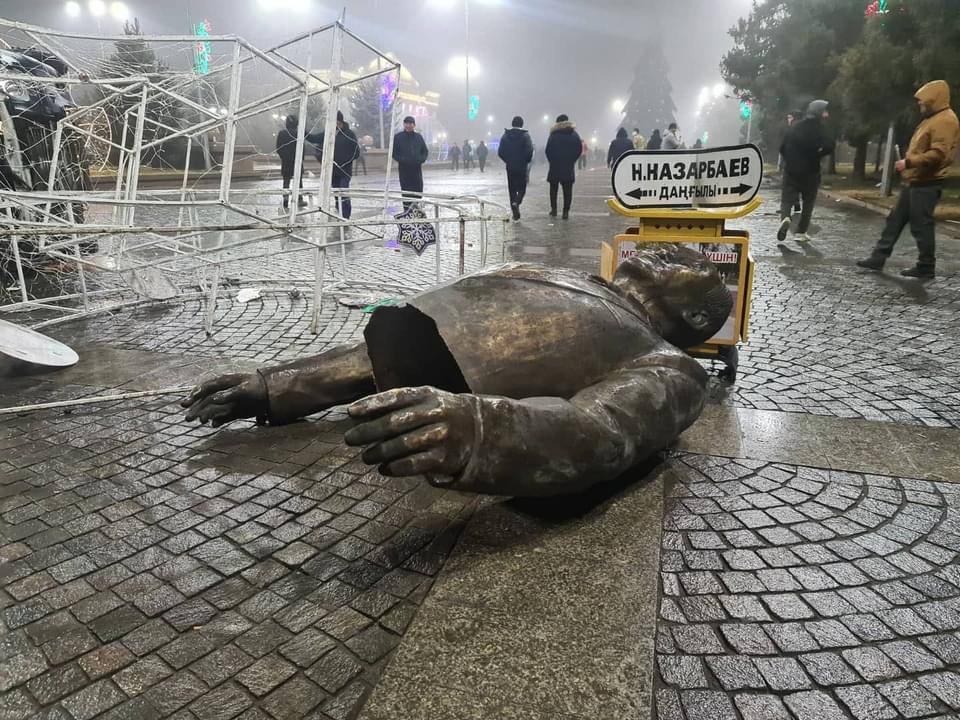Since the beginning of the full-scale military aggression of the Kremlin against Ukraine, more than once questions have been raised: what will happen after it ends? Will Russia fall apart, will new leaders be able to sprout on scorched political soil, what to do with the “popular masses” fooled by propaganda, how not to miss the “correct” historical fork? And in general, is there a future for a country that inculcates the cult of death for the motherland, patriarchy, traditionalism, rejection of all living, new, diverse?

One of the ways to bring Russia out of the evil infinity of authoritarianism may be decolonization and the development of federalism, giving independence (up to full state sovereignty) to Russian regions. As for sovereignty: the notorious “sovereign democracy” and the homogeneous phenomenon “unitary federalism” come to mind, which means the absolute dictate of the federal center in the spheres of economy, finance, management, and social life.
During pre-war catastrophes (remember the infamous Siberian fires and the Covid pandemic), the federal center easily shifted responsibility to the regional authorities, demanded decisive action from them, having previously selected both resources and powers to solve such global tasks. During the war it is even more so: the disproportionate mobilization in poor, as a rule, “ethnic” regions, in which the risk of becoming cannon fodder and dying (while committing war crimes) for a resident of Buryatia is many times higher than for a Muscovite, forced activists representing indigenous peoples to talk about genocide. Yes, and the call of the head of the Investigative Committee of Russia, Alexander Bastrykin, to mobilize naturalized citizens (that is, those former migrants from the countries of the Caucasus and Central Asia who recently received Russian citizenship) “as a matter of priority” speaks of the desire to carry out military aggression with the hands of national minorities. This is a trick of “internationalism”, which essentially becomes racism.
The distortions of the Russian federal structure are also visible in the example of the naming of the first persons of the subjects of the Federation. Ramzan Kadyrov, in a peculiar way, understood Moscow’s instruction that “there can be only one president in Russia”, having achieved a change in the Chechen Constitution and received the title “mekhk-da”, which literally means “father of the motherland”, “father of the country”. Once there were quite many “presidents” among the heads of regions – in fact, neither regional nor federal constitutions contain any restrictions for such a naming. However, at the end of 2021, Law 414-FZ established: no more local presidents, only “head of the subject”, unless you can add an additional name “taking into account the historical, national and other traditions of this subject of the Russian Federation.” The current president of Tatarstan, a region famous for its desire for sovereignty and the last to resist this law, is still allowed to be called president, and the next one will only be a “head” with the additional name “rais” (which means “head”). Allowed “originality” also looks quite colonial…
And now Kadyrov has become “mehk-da”, allegedly taking into account the “traditions of the subject.” The blogosphere is full of ironic comments on this topic. Some suggest not to take this term literally (experts say that it has developed spontaneously in recent years and was used in informal communication by residents of Chechnya and Ingushetia just after the abolition of the name “president”), it cannot be considered a neutral manifestation of “originality”. First of all, because of the authoritarian regime in Chechnya, in which, however, the federal center does not interfere when this intervention is necessary to stop human rights violations (repressions against human rights activists and journalists, abuse of women’s rights, persecution of LGBT+ people).
Such “titles” evoke associations not only with caricatured Eastern rulers from legends and fairy tales, but also modern authoritarian leaders with their ornate self-names. “Arkadag” is the title of the second president of Turkmenistan, Gurbanguly Berdimuhamedov, literally “mountain-support, stronghold”, and non-literally, “patron”, and “hope”, and “patron of all Turkmens”. Before there was a Turkmenbashi, which means “the head of the Turkmens”, in fact, under this name, a model personality cult of the first president of Turkmenistan, Saparmurat Niyazov, was formed in the country. The official title of President of Tajikistan Emomali Rahmon is: “Founder of Peace and National Unity – Leader of the Nation.” Footage of official ceremonies involving Berdymukhammedov or Rahmon conveys fake delight: thunderous applause from Turkmen elders in identical national costumes, a corridor of beautiful women throwing flowers at Rahmon’s feet as he moves along the red carpet, and so on.
However, the regiment of the “fathers of the nation” in our region has both arrived and gone: in Kazakhstan, the constitutional law “On the first president – Elbasy” was cancelled. This title means “leader of the state”, it was officially worn by the first president of Kazakhstan Nursultan Nazarbayev. It seems that in Kazakhstan they are not going to invent new names and refer to any “traditions”, the neutral international word “president” is quite satisfactory. Interestingly, in connection with the new Russian law on the fight against borrowed words, will we expect the replacement of the word “President of the Russian Federation” with something “Of All Rus'”?
For those who still do not understand that war and dictatorship are closely connected, there is a painful realization of the sinister role of the “fathers of the nations”, the overthrow of their monuments from the pedestals, the destruction of their portraits, or, as in the film “Repentance“, throwing the corpse of the dictator by the legs from graves. And an international tribunal is already being prepared for the Russian regime.
Olga Abramenko – expert of the Anti-Discrimination Center Memorial
First published on Radio Liberty’s blog









 Feedback
Feedback